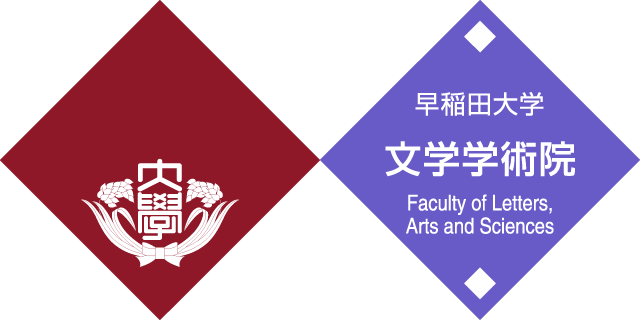- News
- Event Report: International Conference “Translation of Shakespeare as Cultural Exchange”
Event Report: International Conference “Translation of Shakespeare as Cultural Exchange”
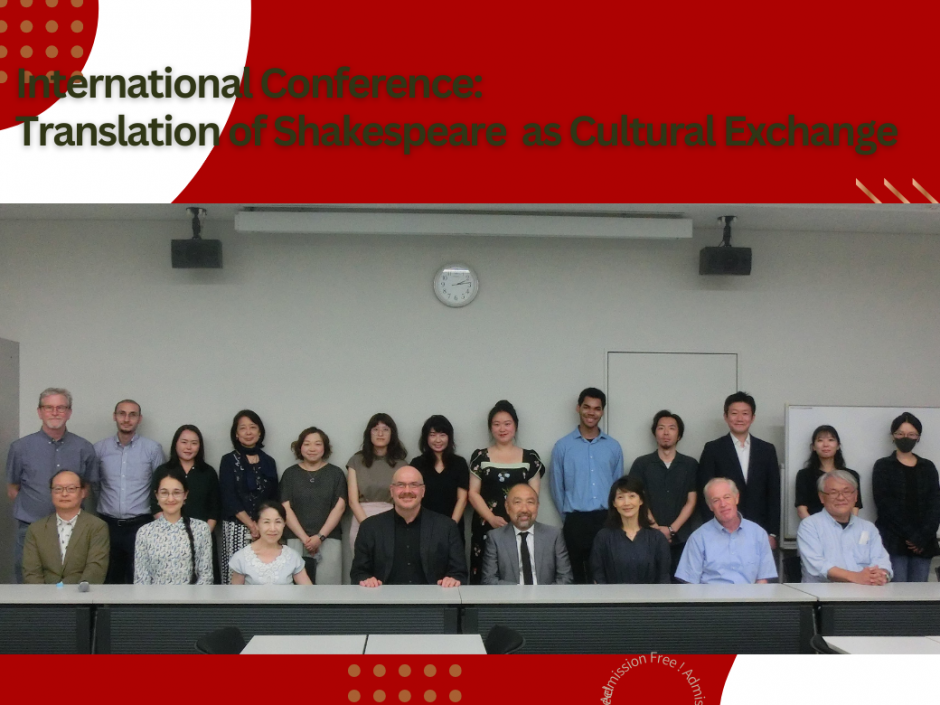
- Posted
- Mon, 04 Dec 2023
In this international conference, on the theme of translation of Shakespeare, there was a lively discussion on how language systems closely linked to cultural traditions are translated and accepted in each cultural sphere, examining differences and identities through presentations and lectures from various aspects. Presentations consisted of lectures and panel discussions by scholars from the U.S., U.K., China, Korea, and other countries, as well as Japanese scholars, including those from Waseda University.

The conference began at 10:00 a.m. on September 29 with opening addresses by Professor Norimasa Morita of Waseda University’s School of International Liberal Studies and Assistant Professor Jessica Chiba of the Shakespeare Institute, which has been engaged in research collaboration with Waseda in the field of Shakespeare studies since 2016, followed by a plenary lecture by Dr. Chiba. In her talk titled “‘Tis common all that lives must die’: Translating Death,” she provided an excellent analysis of how cultural differences in attitudes toward death are reflected in translation and how Shakespeare’s works are perceived.
The afternoon panels featured a diverse range of presentations and discussions. Panel 1, moderated by Assistant Professor Rieko Ishibuchi of the Tsubouchi Memorial Theatre Museum(hereafter Theatre Musuem), focused on the issue of gender and translation. Associate Professor Marie Honda of Meiji Gakuin University discussed the peculiarities of the Takarazuka Revue’s productions of Shakespeare’s plays and the gender-aware translation by Kazuko Matsuoka. Yu Umemiya, lecturer at Seikei University, analyzed the peculiarity of Julius Caesar performed only by women, and then made sharp points and raised issues about the gender-neutral translation and performance. Professor Kyoko Matsuyama of Komazawa Women’s University analyzed the specificity of quotes and transformations from Shakespeare in manga and anime, the adaptations of The Tempest, from an interesting perspective. In Panel 2, moderated by Chiba, Southwestern University student Nick Baylor raised the issue of theories of Shakespeare translation, Professor Tianyuan Zhu of Chengdu University of Technology introduced the transformation of Shakespeare translation in China, and Waseda Ph.D student Hyerin Shin made an interesting point about Shakespeare in video games. In the final special lecture of the first day, Professor Daniel Gallimore of Kwansei Gakuin University, a leading scholar on Shoyo Tsubouchi, provided an incisive analysis of Tsubouchi’s translation of Shakespeare, emphasizing the importance of Tsubouchi’s translation with a precise examination of the seven‐and‐five syllable meter, grammar, and style.
On the second day, Professor Kaori Ashizu of Kobe University gave a special lecture on how Hamlet is positioned in Akira Kurosawa’s film, The Bad Sleep Well, considering an adaptation as a kind of translation. In Panel 3, moderated by Professor Morita, Dr. Mohammad Ahmadi, adjunct lecturer at Waseda University, explained how the Persian version of Hamlet incorporates religious concepts particular to the Middle East. Next, Professor Tetsuhito Motoyama of the Faculty of Law, Waseda University, and Associate Professor Fumiaki Konno of Meiji University gave a detailed analysis of the use of the regional language in the translations of the Shakespeare Company, which performs Shakespeare in the Tohoku dialect. Dr. Sue Jie of Yonsei University, Korea, introduced and analyzed the stage version of K-Shakespeare in Love in Korea with specific examples. 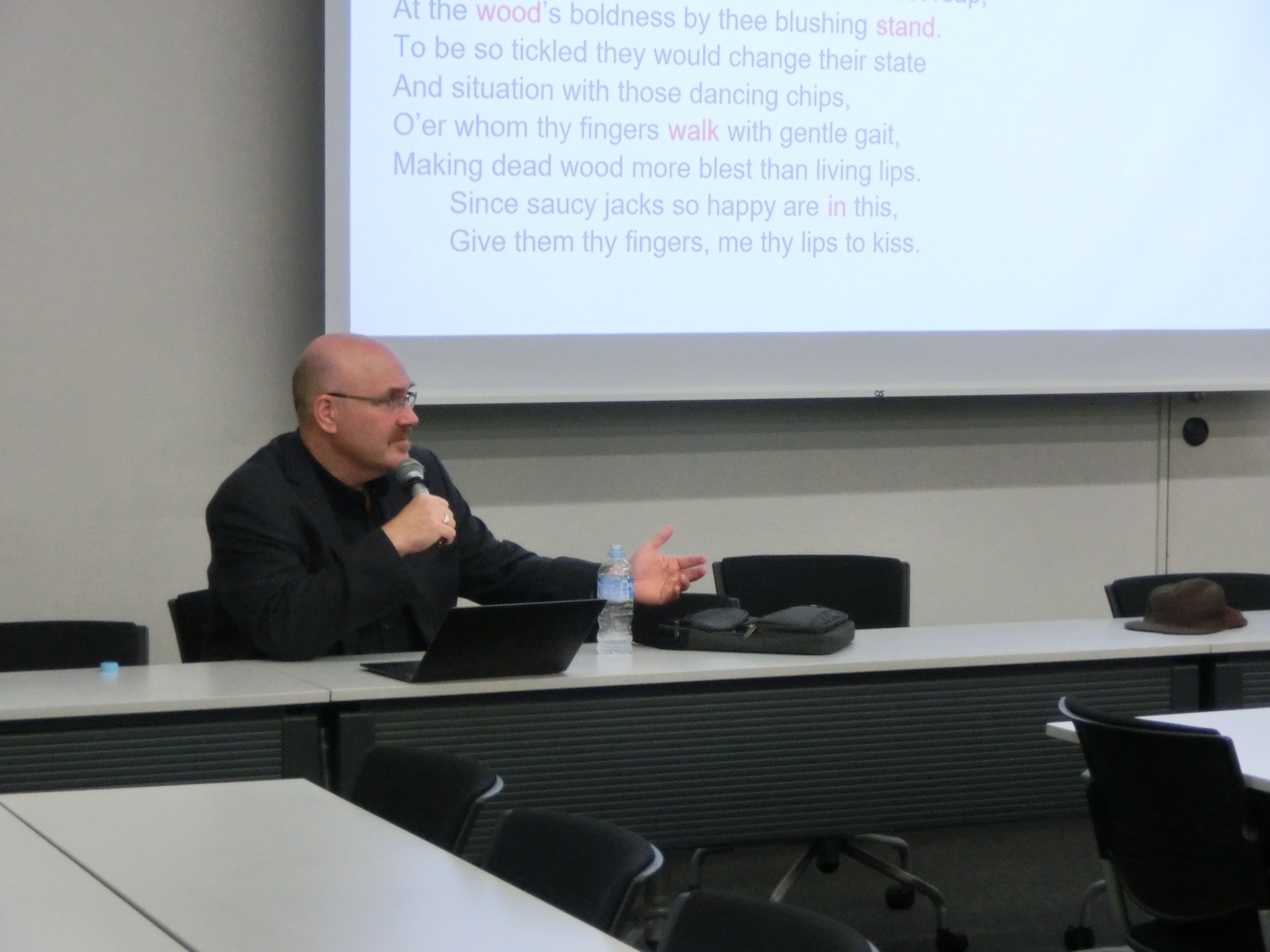
The conference concluded with a plenary lecture by Professor Michael Saenger of Southwestern University, USA, who began with an extensive discussion of the problems in speaking Shakespeare’s language and made specific and incisive points and analyses about the lines. The closing remarks were made by Professor Ryuichi Kodama, Director of the Theatre Museum, who concluded the conference with a discussion of Shakespeare’s translations while viewing documentary footage of The Merchant of Venice performed on the Theatre Museum stage and of Shoyo Tsubouchi. In between sessions and at the reception, the speakers and the participants commented that it was very useful to hear a wide variety of presentations and lectures, and that it was beneficial to share many issues related to translation. Although the number of participants was not large, the conference was a great success, and it has led to the development of the study of Shakespeare’s translations.
After the panels and lectures ended on the 30th, A Midsummer Night’s Dream was performed on the stage in front of the Theater Museum from 3:00 p.m. with the cooperation of the Shakespeare Theater Company of Japan, with the intention of showing how Shakespeare’s translations are used in stage performances. The event was so well attended by the general public that the 50 seats prepared were not enough, and even when the seats were increased to 80, there were still many standing people in the audience. After the event, many people commented that the performance was very interesting, and speakers from abroad also found the stage informative and useful.
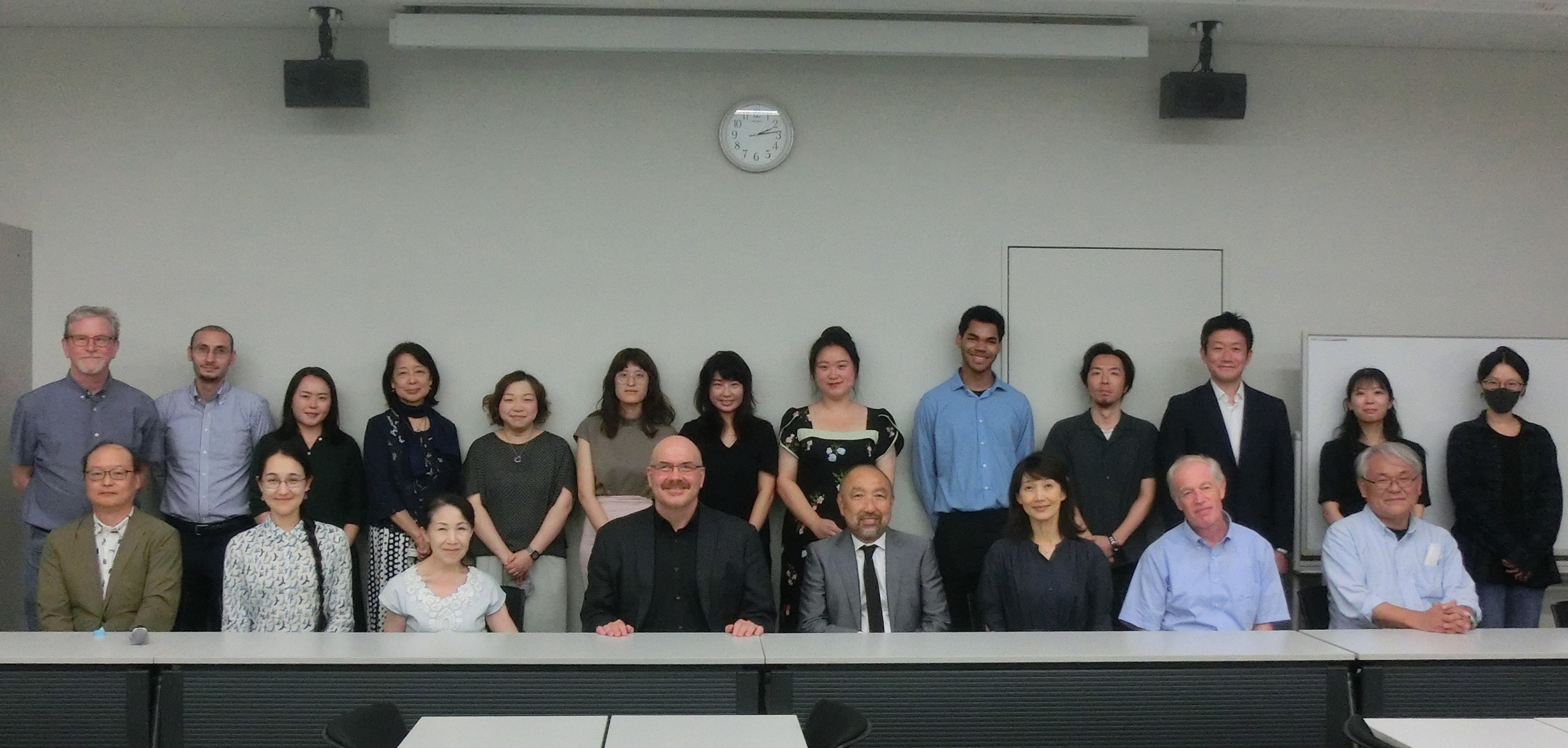 As a related event to the international conference “Translation of Shakespeare as Cultural Exchange,” a workshop mainly for young scholars was held on October 2, 2023 at the Toyama Campus. The event started at 10:30 am and lasted until 12:30 pm with interesting presentations and comments. Professor Tianyuan Zhu (Chengdu University of Technology), Nick Baylor (undergraduate student at Southwestern University), Hyerin Shin (graduate student at Waseda University) and Mys Forrest Bor (undergraduate student at Waseda University) presented their unique approaches to the translation and transformation of Shakespeare into different cultures and media. Commentators Professor Michael Saenger (Southwestern University), Dr. Jessica Chiba (the Shakespeare Institute) and Yu Umemiya (Seikei University) added insightful feedback to the four panels, leading to heated and constructive discussions. Despite the small number of participants, the exchange of ideas and perspectives took place in a warm atmosphere. The conference and workshop verified the positive outlook for the continuation of Shakespeare studies and future collaboration.
As a related event to the international conference “Translation of Shakespeare as Cultural Exchange,” a workshop mainly for young scholars was held on October 2, 2023 at the Toyama Campus. The event started at 10:30 am and lasted until 12:30 pm with interesting presentations and comments. Professor Tianyuan Zhu (Chengdu University of Technology), Nick Baylor (undergraduate student at Southwestern University), Hyerin Shin (graduate student at Waseda University) and Mys Forrest Bor (undergraduate student at Waseda University) presented their unique approaches to the translation and transformation of Shakespeare into different cultures and media. Commentators Professor Michael Saenger (Southwestern University), Dr. Jessica Chiba (the Shakespeare Institute) and Yu Umemiya (Seikei University) added insightful feedback to the four panels, leading to heated and constructive discussions. Despite the small number of participants, the exchange of ideas and perspectives took place in a warm atmosphere. The conference and workshop verified the positive outlook for the continuation of Shakespeare studies and future collaboration.
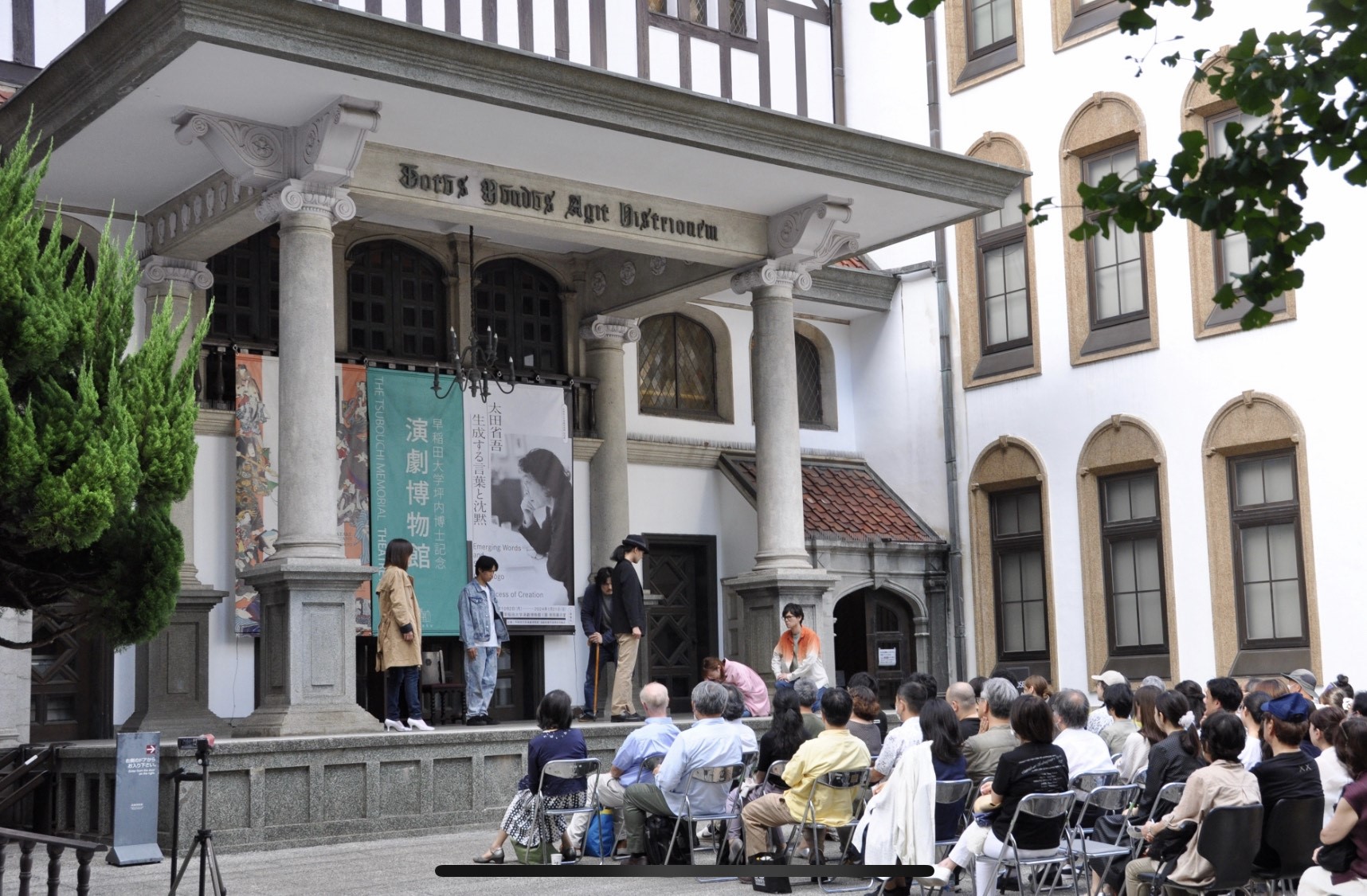
Event Details
- Date and Time: Conference: September 29, 10:30-17:30, September 30, 9:30-17:00 (JST)
Workshop: October 2, 10:30-12:00 (JST) - Venue: Conference: Conference room, 3rd floor. Bldg.8 Waseda University
Workshop: Rm 438, Bldg. 33, Toyama Campus, Waseda University - Language: English
- Participants: Students, faculty and public
- Participation: Free
- Tags
- Event Reports
